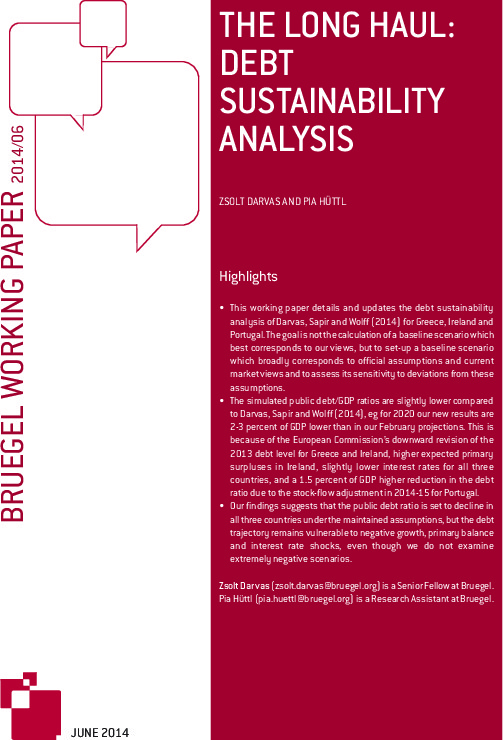Working Paper
The long haul: debt sustainability analysis
The public debt ratio is set to decline in Greece, Ireland and Portugal under the maintained assumptions, but the debt trajectory remains vulnerable to negative growth, primary balance and interest rate shocks, even though we do not examine extremely negative scenarios.
See comment ‘Despite lower yields, euro-periphery is not yet out of the woods‘
This working paper details and updates the debt sustainability analysis of Darvas, Sapir and Wolff (2014) for Greece, Ireland and Portugal. The goal is not the calculation of a baseline scenario which best corresponds to our views, but to set-up a baseline scenario which broadly corresponds to official assumptions and current market views and to assess its sensitivity to deviations from these assumptions.
The simulated public debt/GDP ratios are slightly lower compared to Darvas, Sapir and Wolff (2014), eg for 2020 our new results are 2-3 percent of GDP lower than in our February projections. This is because of the European Commission’s downward revision of the 2013 debt level for Greece and Ireland, higher expected primary surpluses in Ireland, slightly lower interest rates for all three countries, and a 1.5 percent of GDP higher reduction in the debt ratio due to the stock-flow adjustment in 2014-15 for Portugal.
Our findings suggests that the public debt ratio is set to decline in all three countries under the maintained assumptions, but the debt trajectory remains vulnerable to negative growth, primary balance and interest rate shocks, even though we do not examine extremely negative scenarios.








